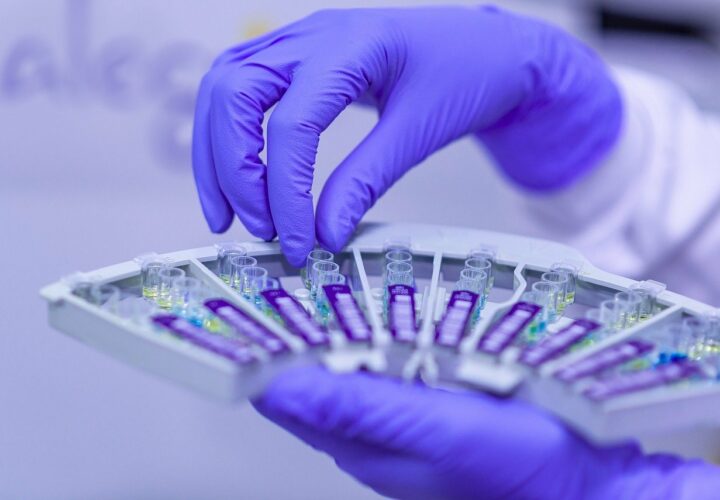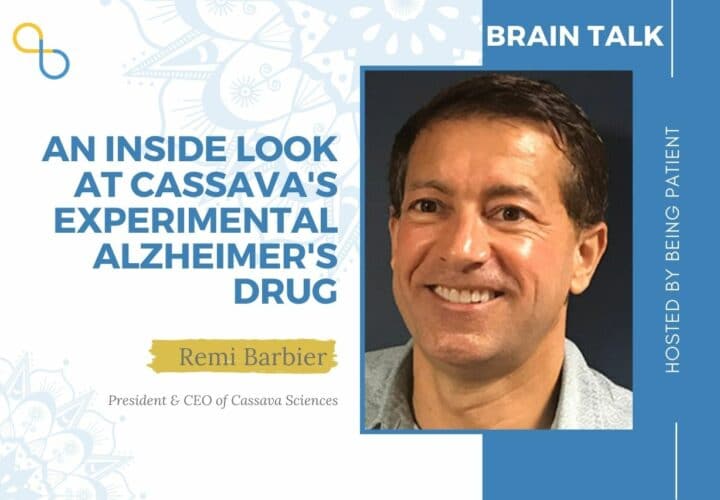Cassava responded this week to allegations of scientific fraud and misconduct around its experimental Alzheimer's drug simufilam. It remains unclear whether complaints will lead to an FDA investigation or delay clinical trials and funding.
The biotechnology company Cassava Sciences — makers of simufilam, an anti-Alzheimer’s drug currently in Phase III clinical trials — was accused of scientific misconduct and fraud by a shareholders’ rights law firm. Cassava Sciences’ stock took a tumble as the firm, Labaton Sucharow, raised concerns through a Food and Drug Administration (FDA) citizen petition — a public request made by individuals and community organizations to change or alter a health policy — asking to suspend the clinical trial until Cassava Sciences’ new trial data is reviewed and audited.
In a statement, the company said it stands behind the integrity of its scientists and data on their investigational drug simufilam, which targets a protein called filamin A to treat Alzheimer’s disease.
However, the FDA citizen petition calls into question the results from lead scientists involved in the research, notably scientific advisor Hoau-Yan Wang, associate medical professor at the City College of New York School of Medicine, and Lindsay Burns, Cassava Sciences’ vice president of neurosciences. According to the report, the initial analysis “suggests a pattern of clear errors and anomalies that are consistent with data manipulation and misrepresentation,” and that these findings “undercut the foundational science on which simufilam therapy is based.”
The report goes on to describe three major areas of concern as well as six minor concerns, termed “suspicious claims.” In a letter written to Dr. Billy Dunn, director at the Office of Neuroscience for the FDA, Jordan A. Thomas, partner at Labaton Sucharow wrote, “All stakeholders are entitled to nothing less than the complete truth about what its drug could do today, not what the company hoped it might someday do.”
Cassava Sciences CEO Remi Barbier said the firm’s claims were surprising and unfounded. He told Being Patient over email, “Cassava Sciences stands behind its science, its scientists and its scientific collaborators, and is responding to ensure the facts are known and respected. As a science company, we champion facts that can be evaluated and verified. This helps people make informed choices.”
In addition, Barbier said these concerns were not brought to the attention of the company before the FDA citizen petition filing. “I’ve never heard of a citizen petition for a pre-Phase 3 drug. We see this filing as a technique intended to add to the pile of fear and doubt generated by their initial document,” he wrote.
The FDA gave notice that they received the petition. In a letter addressed to Labaton Sucharow LLP, stating that accepting and filing the petition “is a procedural matter and in no way reflects the agency’s decision on the substantive merits of the petition.”
Major Misconduct Allegations Against Cassava Sciences
1. Simufilam Primary Biomarker Data
The first of these major concerns referred to the integrity of the data for clinical biomarkers. The citizen petition suggested that Cassava Sciences reanalyzed their data in order to falsify it:
“Cassava Sciences reported that bioassays done by an external group were in error, and that when patient samples were retested and finalized in what we believe to be Dr. Wang’s lab, PTI-125/simufilam was claimed to robustly improve all biomarkers.”
In their response to these concerns, Cassava Sciences noted that this analysis was in fact done by Quanterix Corp., a third-party company.
Complainants said also appears to be a discrepancy between a single datapoint across two figures, suggesting certain data points were manipulated or excluded. This point was not fully addressed in Cassava Sciences’ response.
Finally, this section brings up that the cerebrospinal fluid analysis of these biomarkers was received and accepted by the peer-reviewed Journal of Prevention of Alzheimer’s Disease in a week, which is a very fast turnaround for peer-review — a process that can take months.
2. Western Blot Data
A large section of the report focused on scrutinizing irregularities in data known as Western blots. This technique uses antibodies to detect the presence of specific proteins on a membrane, producing bands corresponding to specific proteins and their molecular weights.
In 2015, Stanford microbiologist and scientific integrity investigator Elisabeth Bik found one in 25 studies showed irregularities in these figures, establishing widespread evidence of potential data manipulation.
“In Western blots, every band has their own characteristics. They’re like faces,” Bik explained to Retraction Watch. “I think if you train people, immediately they will see something is wrong. It takes you less than a second to recognize a face.”
But identical images don’t necessarily mean that the data is manipulated or fraudulent, she said. “When three people agree that an image looks very similar, it might still be a different image, but I think it’s reason to flag that something is possibly wrong, and then talk to the author,” Bik explained.
The citizen petition noted several instances of Western blot irregularities across different studies supporting simufilam’s mechanism of action.
Bik herself identified some irregularities on the PubPeer platform — which allows scientists to discuss data appearing in scientific papers — requesting that the authors release the raw photos of the membranes.
In one thread on PubPeer, Bik agreed with some of the concerns. “In Figures 1A and 1B, the bands in the FLNA blots appear over-saturated, similar in shape, and irregularly spaced. Could the authors show the original, uncropped blots, here, please?” Bik commented on a 2012 paper.
“The bands shown by the allegation are control bands,” Barbier told Being Patient over email. “They’re supposed to roughly look the same.” These were also explained away in the Cassava Sciences press release, which stated: “In addition, image manipulation of control bands makes no sense since these would not change the end data.”
“Cassava Sciences response to (legit) allegations that Western blot bands look similar or spliced raises even more concerns. Variations of this sentence are used remarkably often as a response to image concerns,” Bik wrote on Twitter. “I hope that the company or the lab in which the experiments were performed can provide high resolution scans of these Western blots, to take away any concerns.”
3. Post-Mortem Human Brain Tissue Analysis
This area of the report lists potential issues with the methodology used for functional assays to show the mechanism of simufilam. It notes that the brain tissue samples used across three studies appeared remarkably similar.
Barbier told Being Patient through email that there is no issue with using the post-mortem tissue, even years after initial freezing. In Cassava Sciences’ press release, this is also explained:
“Because of the inaccessibility of the human brain and its unavailability for biopsy, translational medicine can rely on post-mortem tissue. In our case, human brain tissue was collected within 6 hours of death, flash-frozen and stored at -80 Centigrade. This is a standard procedure for pathologists. Such tissue processing is also used in cancer and other fields. Cassava Sciences is not aware of an industry-wide ‘expiration date’ on human post-mortem brain tissue that is properly collected, processed and stored.”
Other Minor Issues
Other minor concerns noted in the appendix of the report included suspicions about the results of different simufilam experiments. These notes don’t raise any specific claims. Rather, they suggest that certain results are unlikely and therefore fraudulent.
Labaton Sucharow’s Aggressive Biopharma Litigation Strategy
Cassava Sciences is not the only drug company that’s been recently been the subject of such a claim by Labaton Sucharow.
In the past two weeks, the firm has announced class-action suits against Ardelyx, Zymergen, and Annovis.
Although many of the points in the complaint against Cassava Sciences have been addressed publicly by the company, it is unclear if the FDA will actually pursue a full investigation.
According to Cassava Sciences’ press release, five days after the petition was filed, the company agreed to a Special Protocol Assessment, meaning it must reach an agreement with the FDA on the study design and sample size for its Phase III trial.




Law firms are crooks that live off their slick tongue lies in collusion with the crooked FDA, a mobster organization, inconsiderate of scientific respect or facts.they have no business in blocking such important scientific research advancement as in Alzheimer’s.